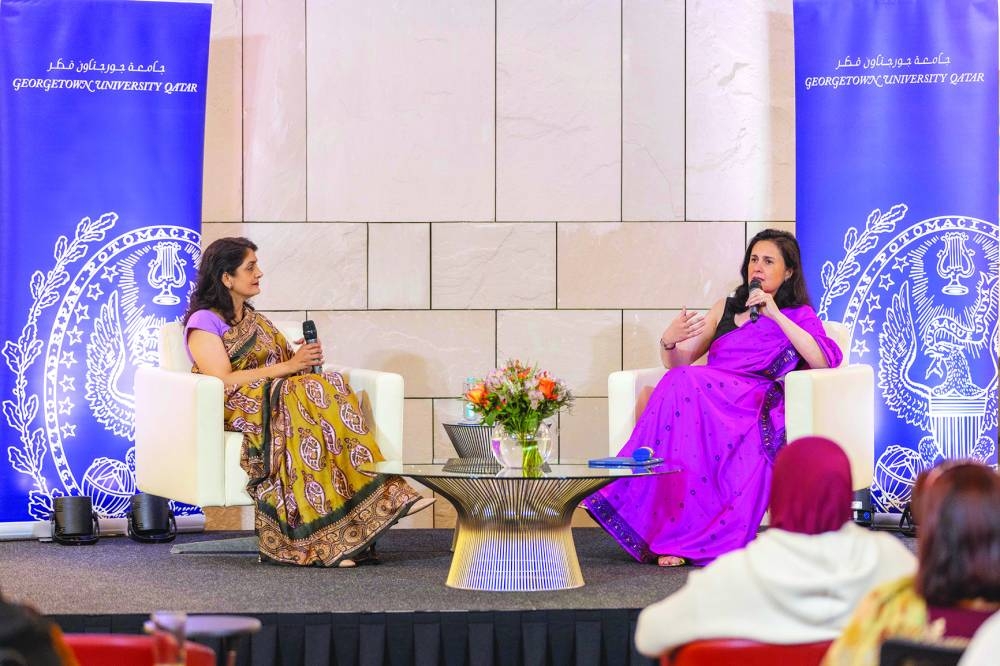Georgetown University in Qatar (GU-Q) hosted a special Qalam event featuring Kamila Shamsie, the writer-in-residence, in conversation with Zahra Babar, executive director of the Centre for International and Regional Studies (CIRS).
The unique discussion brought together two distinguished voices whose work challenges conventional narratives and provokes meaningful dialogue on some of the most pressing issues of our time.
Shamsie, an award-winning novelist known for Home Fire, Burnt Shadows, and Best of Friends, has spent her literary career exploring themes of exile, identity, and political responsibility. Babar, a respected scholar and researcher, has extensively studied migration, citizenship, and social transformation in the Gulf region.
The intersection of their work — fiction and scholarship — provided a compelling conversation about the ways in which storytelling in all its forms, shapes our understanding of belonging, memory, and identity.
In his introduction to the event, dean Safwan Masri thanked Shamsie for enriching campus life through her engagement with students and her Qalam Series of interviews with award winning authors. Highlighting the intersection of her work with the university’s international affairs focus, he said: “She is a writer whose stories traverse continents with the characters within them and whose words lay bare the fault lines that shape our modern world. But Kamila is not only a storyteller; she is also an advocate for literature’s place in public discourse. She has written fearlessly on the responsibilities of writers in politically volatile times.”
The conversation between Shamsie and Babar ranged from discussing the writing process to the role of historical research in fiction, to advice on self-reflection and reinvention. The result was a thoughtful exchange between two extraordinary women, each committed to examining the forces that shape our world, and unafraid to upend conventional wisdom to forge their own paths.
Throughout the evening, Shamsie drew from her experience of writing eight novels to encourage the audience to establish a practice of writing, even if they don’t have a clear plan of what to write. “In the course of the meandering, you discover what the book should really be,” she said, adding that “the joy is in the process itself...the not knowing feels very exciting.”
She also advised that writing what you know “can mean learning new things,” emphasising that success as a writer comes from persistence. “You show me one professional novelist who is waiting for inspiration to strike and I will show you a liar,” she said, adding “If I had to give one piece of advice to writers, it would be to get to the end of your first draft. So many of the very best writers you will never read because they never published.”

Kamila Shamsie (right) and Zahra Babar at the event.
